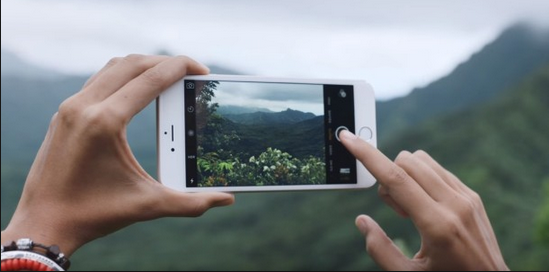Spring Cleaning: Digital Detox Challenge
March 28th, 2016
The irony is palpable. I’m sitting in a coffee shop with my cell phone three inches from my MacBook, writing an opinion piece about the importance of a digi-free existence. The woman across from me talks on her iPhone while flipping through website on her tablet; a man waiting for his coffee leans against a countertop, tuned into the screen resting in his hand, his thumb vigorously swiping up, up, up.
“Tall mocha latte.” The barista cleans the countertops while the plume of steam rises from the unclaimed coffee. “Tall mocha, no whip?” She scans the room. “Sir. Sir?” The leaning man tunes back into the present moment, sliding his phone into his pocket long enough to sip his foamy latte, and retreats to a table in the corner of the coffee shop. Immediately, he pulls out his smartphone and disappears back into the familiar womb of cyberspace.
Is this progress, or an epidemic? All of the knowledge in the world fits inside our pockets; we capture precious moments, connect to an infinite social network, support organizations and startups, expand our business portfolios—the possibilities are seemingly endless. But, what does this infinite digital highway mean for our humanity?
Our personal lives have digressed from “behind the scenes” to behind the screens. Instant gratification has altered our sociological psyche to an extent, making society less willing to wait, work, and want. We’ve shortened our means of communication and dulled the quality of our relationships. Texts have replaced phone calls. Emails have replaced hand-written letters. Spending time on those that we love is becoming a lost art as we’ve isolated our instinct for community and transferred that need to a fleetingly fulfilling cyber-community.
Social media has digitally satiated our desire to see the world and simultaneously created an insatiable desire to live “better.” Research shows that we are less satisfied with our own lives due to media’s ability to take us inside the lives of those we admire: celebrities, travelers, professionals, etc. How did that person end up with such an amazing life—and why isn’t mine like that? We’re increasing our desire for more, while decreasing our motivation to work for it.
But, like so many trends of human civilization, this trend may be on the brink of boiling over and, essentially, distinguishing its own flames. Human beings have strayed so far from our natural existence that we seem to be waking up from the cyber-coma. We’re realizing how terrifyingly close we’ve come to making ourselves obsolete.
So, join me on my Spring Cleaning: Digital Detox Challenge. Use your phone for one thing, and one thing only: phone calls. Stop yourself from texting, taking iPhotos, and wasting your free time surfing the Internet. Then, try to wean yourself from computer and television screens. No online recipes or travel channel getaways. You’ll just have to call Mom for that banana bread recipe.
Start your Digital Detox by keeping a time log every day, hour by hour, for a single week. At the end of the week, categorize various activities during the week. An example could be “Work,” with subcategories: grading papers, giving lectures, researching on the Internet. Once you have categorized your activities, look at your lists and circle those that you see as most important to you, your health, and your future. Then, average out the amount of time that you spend behind the screens: television, computer, cell phone, tablet, kindle. This screen time could occur at work, or at home.
Take time to reflect on what you have learned in your time log. Consider: What have you discovered about your time? How many hours are spent behind the screen? How many of those hours feel “lost” to you, rather than fulfilled by meaningful activity? What may you replace screen time with to bring more fulfillment into your life?
Next, create a T-chart on a blank piece of paper. On one side, write “Barriers.” On the other, write “Solutions.” Under the “Barriers” column, consider what prevents you from using your time effectively. You will find that your phone, Netflix, computers, or being overly tired (presumably from too much screen time and not enough physical interaction) are major culprits. Under the “Solutions” column, consider what you could do to use your time more effectively. Suddenly, you’ll see words like “turn off,” “put away,” “get outside,” “procrastinate less,’ or “be more creative.” This is your Digital Detox plan. Once you begin to shift your lifestyle based on your self-reflection, your perception of life will begin to shift, too.
The Digital Detox Challenge dares you to pick up a guitar again, split wood, knit a spring sweater, paint a watercolor of the blooming cherry blossom tree in your back yard, clean your home, build a chicken coop, learn from your neighbor, plan your garden, write a short story, cook with friends, read a book… out loud… to your family. Become more socially conscious of our surroundings by being connected to others, rather than your phone. You’ll feel far more relaxed than you ever thought possible. Imagine the healthy traditions we can build again if only we try.
Contributed by Christine St. Pierre

Leave a Reply